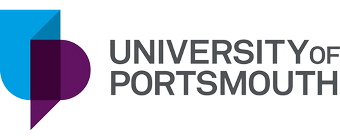This Clinical Exercise Physiology Master's degree program provides a holistic approach to assisting patients with long-term health issues and improving their quality of life. The course teaches pathophysiology, clinical evaluation, pre-exercise screening, clinical exercise testing, intervention design, and physical activity instruction. Students will learn practical skills in pathophysiology, clinical evaluation, pre-exercise screening, testing, intervention design, and behavior modification. They will learn about the link between exercise and chronic disease, the psychological benefits of exercise, and the significance of testing. Graduates can work in a variety of clinical settings and eventually become qualified clinical exercise physiologists.

University of Portsmouth
MSc Clinical Exercise Science
Entry Requirements
- A minimum of a 2:1 honours degree or equivalent in a relevant subject. Professional experience and other qualifications may be taken into consideration for applicants not meeting this requirement.
- English language proficiency at a minimum of IELTS band 7.0 with no component score below 6.5.
Career Prospects
This course provides students with the skills and knowledge they need to work in a variety of clinical settings, including health and wellness physiology, clinical exercise physiology, exercise referral coordinator, GP exercise referral coordinator, NHS trainee clinical scientist, health advisor, cardiopulmonary exercise testing research technician, mental health exercise instructor, NHS physical activities adviser, and private exercise physiologist. The course also provides postgraduate research opportunities, such as a PhD. Industrial contacts, employment events, recruiting fairs, and individual guidance are all used to provide assistance.
Course Details
The Master's degree program is designed to accommodate students with various responsibilities, including work and family responsibilities. The course structure is divided into one year for full-time study and two years for part-time study. Full-time students will spend 6-10 hours of teaching time per week, while part-time students will spend 3-5 hours per week. Independent study will be 30 hours per week. The final three months will be dedicated to the independent study project.
Master's study is more specialized than an undergraduate degree, allowing students to focus on a specific topic and work closely with academics dedicated to the subject. Teaching methods include seminars, workshops, and practical sessions. Assessments will be conducted through practical assessments, research reports, applied essays, case studies, project reports, and poster presentations. Students can test their skills and knowledge informally before undergoing assessments that count towards their final mark. Feedback on both practice and formal assessments will be provided to help students improve in the future.
Course Modules
Clinical Exercise Testing and Interpretation - 30 credits
Clinical Strength and Conditioning - 30 credits
Humans in Extreme Environments - 30 credits
Pathophysiology and Medical Management - 30 credits
Psychology of Exercise and Physical Activity - 30 credits
Research and Practice Development - 30 credits
Are you ready to start building your future?
Contact our admission counseller and get a free consultation.













